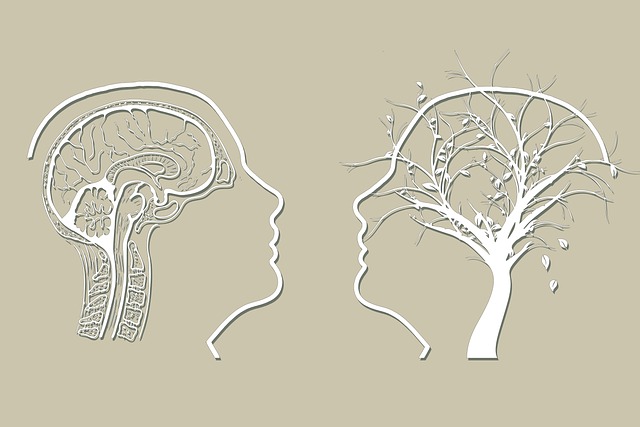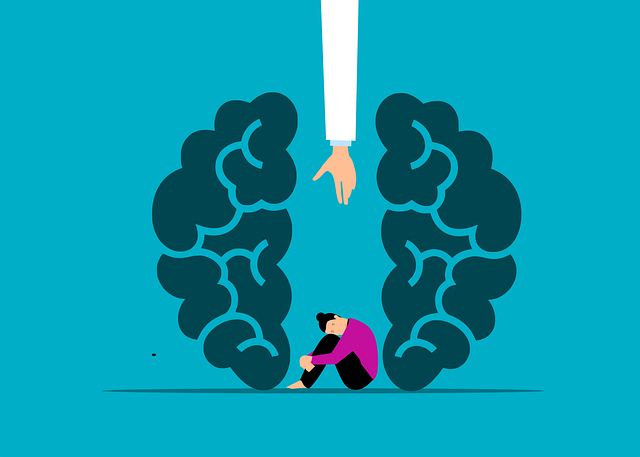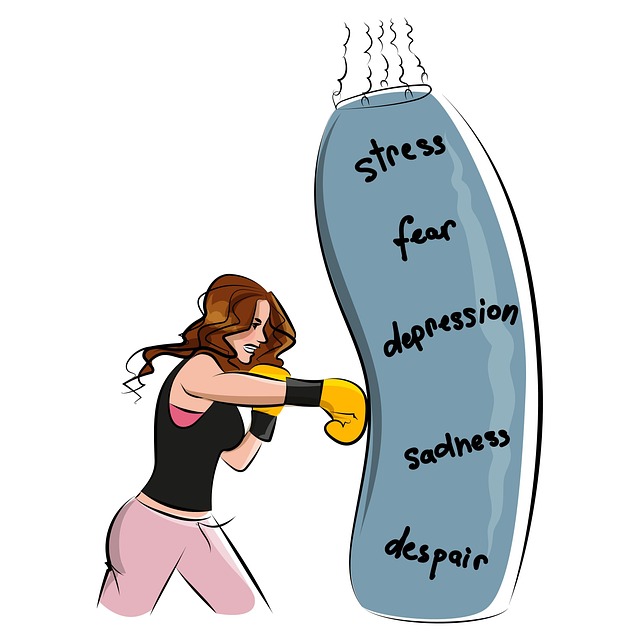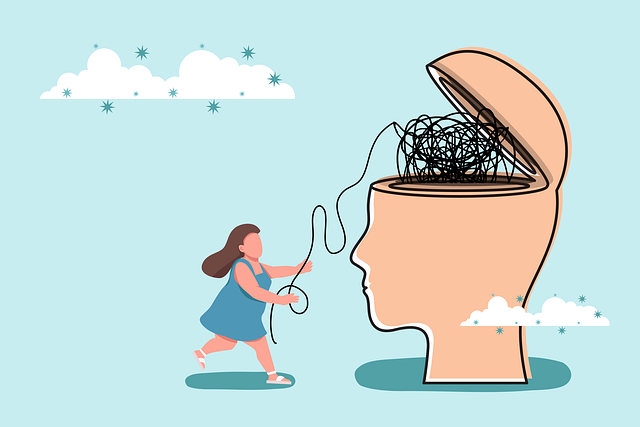Media portrayal of mental health, especially conditions like codependency, significantly shapes societal attitudes and access to support. Accurate representations, such as those seen in Louisville Codependency Therapy, can destigmatize mental health issues and encourage more people to seek help. Positive media portrayals promote empathy, effective coping strategies, and better support systems. Conversely, negative or inaccurate depictions may perpetuate stereotypes and hinder progress. Understanding media's impact is crucial for creating an inclusive society for mental wellness. Louisville Codependency Therapy offers a holistic approach that breaks down stereotypes through community fostering and self-reflection activities, empowering individuals with codependency management tools while reducing stigma globally. Community engagement and collaborative initiatives like workshops, peer support groups, and advocacy events are key to their success, promoting open conversations about mental health and tailored care for diverse backgrounds.
“Mental illness representation in media significantly shapes public perception, often perpetuating stereotypes that hinder support and understanding. This article delves into the challenges posed by inaccurate portrayals, offering a unique perspective with Louisville Codependency Therapy—a revolutionary approach aimed at challenging these stereotypes. We explore effective strategies for promoting empathetic media representation, emphasizing the power of community engagement in mental health advocacy. By fostering positive change, we can ensure more accurate and compassionate narratives that positively impact mental health discourse.”
- Understanding the Impact of Media Portrayal on Mental Health Perception
- Louisville Codependency Therapy: A Unique Approach to Challenging Stereotypes
- Effective Strategies for Promoting Accurate and Empathetic Media Representation
- Fostering Positive Change: The Role of Community Engagement in Mental Health Advocacy
Understanding the Impact of Media Portrayal on Mental Health Perception

The media has a profound impact on shaping societal perceptions about mental health, particularly when it comes to conditions like codependency. In Louisville Codependency Therapy, for instance, accurate representation in the media can significantly influence how individuals understand and approach their own or others’ struggles with mental wellness. Positive portrayals of therapy and mental health professionals can destigmatize these issues, encouraging more people to seek help. Conversely, negative or inaccurate representations may perpetuate stereotypes and hinder progress in coping skills development.
Media portrayal plays a crucial role in public education about mental illness. By presenting balanced narratives that highlight the human experience behind conditions like anxiety and codependency, media can foster empathy and promote effective strategies for anxiety relief. This, in turn, can lead to better support systems and improved access to resources for those dealing with these challenges. Ultimately, understanding the impact of media representation is essential to shaping a more inclusive and supportive society for mental wellness.
Louisville Codependency Therapy: A Unique Approach to Challenging Stereotypes

Louisville Codependency Therapy offers a unique and innovative approach to challenging stereotypes surrounding mental illness, particularly in regard to codependency. By focusing on both individual therapy and group support sessions, this method fosters a sense of community and understanding among participants. Through interactive activities that encourage self-reflection, individuals learn to recognize unhealthy patterns and develop healthier coping mechanisms, breaking free from societal norms that often stigmatize their experiences.
Incorporating practices like mindfulness meditation into the therapy process helps clients cultivate awareness, acceptance, and balance in their lives. This not only aids in managing codependency but also promotes overall well-being. Additionally, the development of public awareness campaigns and encouragement of self-care routines can further contribute to destigmatization. By combining these strategies, Louisville Codependency Therapy aims to empower individuals while challenging societal perceptions, paving the way for better mental health support and increased empathy in communities worldwide.
Effective Strategies for Promoting Accurate and Empathetic Media Representation

Media representation plays a pivotal role in shaping societal perceptions about mental illness. To challenge stigmatization and promote understanding, media outlets must adopt strategies that foster accurate and empathetic portrayals. One effective approach is to involve individuals with lived experiences as consultants or contributors, ensuring their voices are heard and their stories are authentic. This strategy not only adds depth but also encourages a more nuanced view of mental health struggles. Additionally, collaborating with mental health professionals like those offering Louisville codependency therapy can provide valuable insights into the creation of compelling and sensitive content.
Incorporating practices such as Mindfulness Meditation can further enhance these representations. By showcasing characters engaging in self-care practices or highlighting the benefits of therapy, media can subtly promote resilience building and encourage viewers to seek support when needed. Mental Health Policy Analysis and Advocacy also plays a critical role in ensuring that stories are not just entertaining but also reflect the reality of mental health systems and available resources. Through these strategies, media has the potential to contribute significantly to mental health discourse, fostering empathy and reducing stigma on a larger scale.
Fostering Positive Change: The Role of Community Engagement in Mental Health Advocacy

Fostering positive change in mental health advocacy requires a collective effort, with community engagement playing a pivotal role. By empowering individuals and communities to understand and support those dealing with mental illness, we can dispel stereotypes often perpetuated by media representations. Louisville Codependency Therapy, for instance, has seen success through community-based initiatives that promote open conversations about mental health. These efforts include educational workshops, peer support groups, and collaborative projects with local healthcare providers.
Engaging the community holistically—through various platforms like Mental Wellness Podcast Series Production, cultural sensitivity training for healthcare providers, and advocacy events—enhances cultural competency. This ensures that everyone, regardless of background, receives mental healthcare services tailored to their unique needs. Ultimately, fostering positive change involves creating an environment where individuals feel supported, understood, and encouraged to prioritize their mental wellness, mirroring a culture of care and respect.
Mental illness representation in media has a profound impact on public perception. By implementing effective strategies, such as those offered by innovative approaches like Louisville Codependency Therapy, we can challenge stereotypes and foster positive change through community engagement. It’s crucial to ensure accurate and empathetic media portrayals to promote understanding and reduce stigma, ultimately enhancing mental health advocacy.














